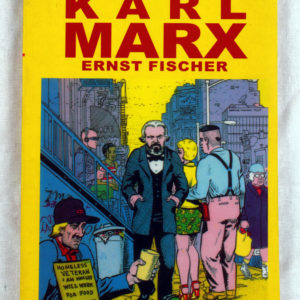The Good Earth | Pearl S. Buck
₨ 638.00
The Good Earth is a novel by Pearl S. Buck published in 1931 that dramatizes family life in a Chinese village in the early 20th century. It is the first book in a trilogy that includes Sons (1932) and A House Divided (1935). It was the best-selling novel in the United States in both 1931 and 1932, won the Pulitzer Prize for Fiction in 1932, and was influential in Buck’s winning the Nobel Prize for Literature in 1938. Buck, who grew up in China as the daughter of missionaries, wrote the book while living in China and drew on her first-hand observation of Chinese village life. The realistic and sympathetic depiction of the farmer Wang Lung and his wife O-lan helped prepare Americans of the 1930s to consider Chinese as allies in the coming war with Japan.
The novel was included in Life Magazine’s list of the 100 outstanding books of 1924–1944. In 2004, the book returned to the bestseller list when chosen by the television host Oprah Winfrey for Oprah’s Book Club.
The Good Earth is a novel by Pearl S. Buck published in 1931 that dramatizes family life in a Chinese village in the early 20th century. It is the first book in a trilogy that includes Sons (1932) and A House Divided (1935). It was the best-selling novel in the United States in both 1931 and 1932, won the Pulitzer Prize for Fiction in 1932, and was influential in Buck’s winning the Nobel Prize for Literature in 1938. Buck, who grew up in China as the daughter of missionaries, wrote the book while living in China and drew on her first-hand observation of Chinese village life. The realistic and sympathetic depiction of the farmer Wang Lung and his wife O-lan helped prepare Americans of the 1930s to consider Chinese as allies in the coming war with Japan.
The novel was included in Life Magazine’s list of the 100 outstanding books of 1924–1944. In 2004, the book returned to the bestseller list when chosen by the television host Oprah Winfrey for Oprah’s Book Club.
A Broadway stage adaptation was produced by the Theatre Guild in 1932, written by the father and son play writing team of Owen and Donald Davis, but critics gave a poor reception, and it ran only 56 performances. However, the 1937 film, The Good Earth, which was based on the stage version, was more successful.
The Plot
The story begins on Wang Lung’s wedding day and follows the rise and fall of his fortunes. The House of Hwang, a family of wealthy landowners, lives in the nearby town, where Wang Lung’s future wife, O-Lan, lives as a slave. However, the House of Hwang slowly declines due to opium use, frequent spending, uncontrolled borrowing and a general unwillingness to work. Meanwhile, Wang Lung, through his own hard work and the skill and hard work of his wife, O-Lan, slowly earns enough money to buy land from the Hwang family, piece by piece. O-Lan delivers three sons and three daughters; the first daughter becomes mentally handicapped as a result of severe malnutrition brought on by famine. Her father greatly pities her and calls her “Poor Fool,” a name by which she is addressed throughout her life. O-Lan kills her second daughter at birth to spare her the misery of growing up in such hard times, and to give the remaining family a better chance to survive. During the devastating famine and drought, the family must flee to a large city in the south to find work. Wang Lung’s malevolent uncle offers to buy his possessions and land, but for significantly less than their value. The family sells everything except the land and the house. Wang Lung then faces the long journey south, contemplating how the family will survive walking, when he discovers that the “firewagon” (the Chinese word for the newly built train) takes people south for a fee.
In the city, O-Lan and the children beg while Wang Lung pulls a rickshaw. Wang Lung’s father begs but does not earn any money, and sits looking at the city instead. They find themselves aliens among their more metropolitan countrymen who look different and speak in a fast accent. They no longer starve, due to the one-cent charitable meals of congee, but still live in abject poverty. Wang Lung longs to return to his land. When armies approach the city he can only work at night hauling merchandise out of fear of being conscripted. One time, his son brings home stolen meat. Furious, Wang Lung throws the meat on the ground, not wanting his sons to grow up as thieves. O-Lan, however, calmly picks up the meat and cooks it. When a food riot erupts, Wang Lung is swept up in a mob that is looting a rich man’s house and corners the man himself, who fears for his life and gives Wang Lung all his money in order to buy his safety. Meanwhile, O-Lan finds jewels in a hiding place in another house and hides them between her breasts.
Wang Lung uses this money to bring the family home, buy a new ox and farm tools, and hire servants to work the land for him. In time, the youngest children are born, a twin son and daughter. When he discovers the jewels that O-Lan looted, Wang Lung buys the House of Hwang’s remaining land. He is eventually able to send his first two sons to school (also apprenticing the second one as a merchant) and retains the third one on the land. As Wang Lung becomes more prosperous, he buys a concubine named Lotus. O-Lan endures the betrayal of her husband when he takes the only jewels she had asked to keep for herself, the two pearls, so that he can make them into earrings to present to Lotus. O-Lan’s morale suffers, and she eventually dies but not before witnessing her first son’s wedding. Wang Lung finally appreciates her place in his life as he mourns her passing.
Lung and his family move into town and rent the old House of Hwang. Wang Lung, now an old man, wants peace, but there are always disputes, especially between his first and second sons and particularly their wives. Wang Lung’s third son runs away to become a soldier. At the end of the novel, Wang Lung overhears his sons planning to sell the land and tries to dissuade them. They say that they will do as he wishes but smile knowingly at each other.






Reviews
There are no reviews yet.